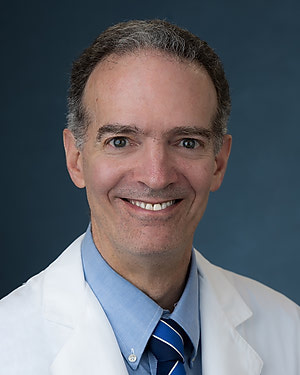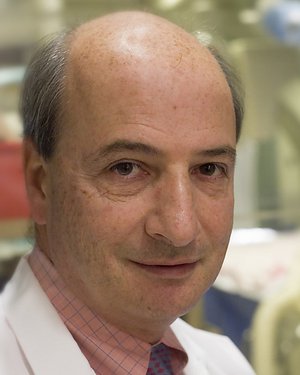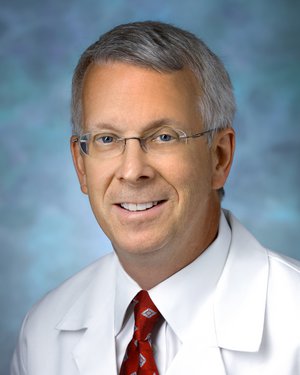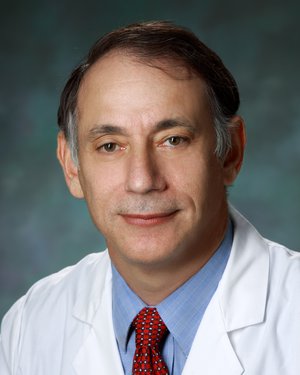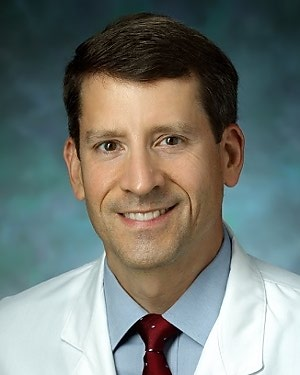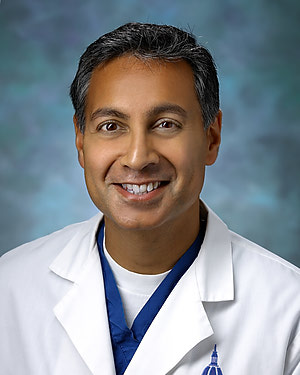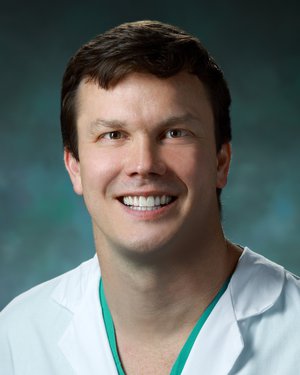Clinical Cardiac Electrophysiology Training Program
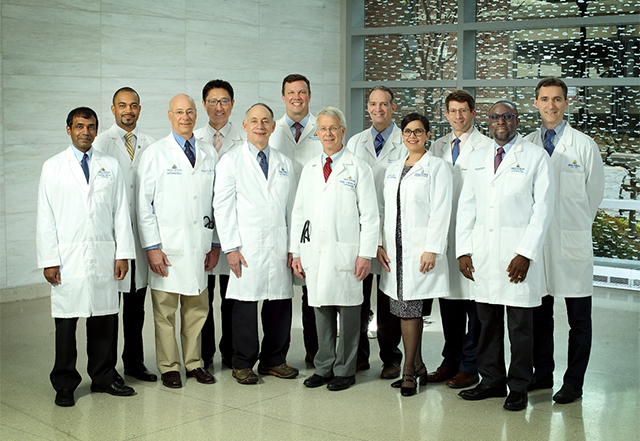
In this section:
Program Overview
Fellows train in the Johns Hopkins Clinical Cardiac Electrophysiology program to achieve excellence in all areas of arrhythmia management. Trainees develop expertise in the diagnosis and management of arrhythmias disorders, including invasive and noninvasive testing, and all therapeutic modalities including medical management, device implantation and follow-up, and catheter ablation.
CCEP fellows participate in all activities of the Hopkins Arrhythmia Service. They meet arrhythmia patients in both inpatient and outpatient settings to observe, diagnose, manage, and judge the effectiveness of treatments for these patients. Fellows are given the opportunity to assume continuing and increasing responsibility for both acutely and chronically ill patients to learn the natural history of a wide variety of cardiac arrhythmias and how to treat them.
Fellows are given increasing responsibility in invasive procedures in the EP laboratory. These procedures include diagnostic EP studies, arrhythmia mapping, catheter ablation for supraventricular and ventricular tachycardias, and pacemaker, ICD, and cardiac resynchronization therapy device implantations. Fellows also participate in non-invasive procedures including cardioversions, tilt table tests, and device tests. Fellows consult on patients with arrhythmias and implanted devices in the intensive care units and other inpatient units. In addition, each fellow spends a day each week in one of the arrhythmia outpatient clinics. The fellows rotate among each of the EP faculty clinics as well as the outpatient device clinic, thus affording trainees the opportunity to observe and manage patients longitudinally, and to gain experience with device follow-up and management.
Most of the CCEP fellowship training occurs in the Johns Hopkins Hospital and Outpatient Center. However, fellows also rotate for a week at a time to the Hopkins Bayview campus to participate in EP procedures, inpatient arrhythmia consults, and device clinic there. This experience broadens the patient base for fellowship training, and provides fellows an opportunity to strengthen their teaching skills as they work with medicine housestaff and faculty less knowledgeable than they are regarding arrhythmia management. The Bayview experience is designed to dovetail seamlessly with the program on the main Hopkins campus to achieve common educational goals.
The CCEP Training Program is designed to ensure that fellows acquire not only the cognitive knowledge and procedural skills required for excellence in clinical cardiac electrophysiology, but that they develop excellence in interpersonal skills, professional attitudes, and humanistic qualities required of a practitioner in this subspecialty. The clinical training integrates patients’ medical problems with health promotion and cultural, socioeconomic, ethical, occupational, environmental, and behavioral issues into the learning experience, such that the importance of humanistic qualities is emphasized throughout the fellowship.
The fellowship is designed to provide trainees with an educational experience that is broad and deep. In addition to the extensive direct clinical exposure, a variety of didactic and investigative opportunities are provided during the fellowship. A weekly EP service meeting, attended by all EP faculty, fellows, and staff, is used for didactic teaching, discussion of recent cases and complications, presentations of fellows’ research, and journal club on a rotating basis. Fellows are also expected to attend weekly Cardiology Grand Rounds and Cardiology fellows’ Core Curriculum, Research, and Clinical conferences. Each EP fellow is given a clinical research project to carry out during the training program and the opportunity to present this work at national meetings and in manuscript form. Fellows can also participate in basic science, outcomes, and public health research during their training.
Supervision, and Fellow Evaluation
Fellows are supervised by the faculty in all clinical activities. Each procedure is closely supervised by one of the EP faculty. Consults are supervised by the on-service EP attending for that week. Each outpatient and device clinic is staffed and supervised by an EP attending. Procedures performed at Bayview are supervised by a Hopkins EP faculty member or, in some pacemaker insertions, by one of the Bayview cardiologists who is highly experienced in this procedure.
Fellows are carefully evaluated by the faculty in terms of their medical knowledge, provision of medical care, skills in history taking and physical examination, clinical judgment, medical decision making, technical competency, teaching and communications skills, humanistic qualities, professional attitudes and behavior, and commitment to scholarship. Faculty base their evaluation on direct observation of fellows’ activities in the outpatient center, during inpatients consultations, and during EP lab-based procedures. Each fellow’s performance is reviewed by each faculty member quarterly and documented in E-Value, a web-based database application. The program director meets with each fellow to discuss progress and career plans at least semiannually. Performance is evaluated such that expectations of technical competency and cognitive growth increase as the fellow progresses through the training program.
In the first 6 months of the training program, fellows will participate primarily in standard pacemaker and ICD implants, diagnostic EP studies, and less complex ablation procedures, including AV node ablation, AV node modification, and ablation of accessory pathways and the typical form of atrial flutter. As fellows establish competency in these procedures, they will then participate in more complex procedures, including implantation of cardiac resynchronization devices and ablation of atypical atrial flutters, atrial fibrillation, and ventricular tachycardia. During all phases of the 2-year fellowship program, fellows also participate in all non-procedural aspects of inpatient and outpatient arrhythmia management.
Facilities
The CCEP training program takes full advantage of the excellent facilities dedicated to the Electrophysiology service at Johns Hopkins. This includes two biplane fluoroscopy labs, each with digital recording system, programmable stimulator, RF generator, and 3D mapping system. The service also has a dedicated non-fluoro lab for cardioversions, tilt table tests, and ICD tests. The EP service has dedicated space in the Outpatient Center for patient evaluation and device follow-up. At Bayview Medical Center, the EP service has a newly built dedicated EP lab with biplane fluoroscopy lab. The lab is fully equipped with a digital recording system, ablation equipment, and programmable stimulator.
Curriculum
The Clinical Cardiac Electrophysiology Curriculum is organized around the six core competencies defined by the Accreditation Council for Graduate Medical Education (ACGME). Methods of assessment have also been developed to more completely address the defined competencies. The six competencies are:
- Patient Care: Fellows are expected to provide patient care that is compassionate, appropriate and effective for the promotion of health, prevention of illness, treatment of disease and care at the end of life.
- Gather accurate, essential information from all sources, including medical interviews, physical examination, records, and diagnostic/therapeutic procedures.
- Make informed recommendations about preventive, diagnostic, and therapeutic options and interventions that are based on clinical judgment, scientific evidence, and patient preferences.
- Develop, negotiate and implement patient management plans.
- Perform competently the diagnostic and therapeutic procedures considered essential to the practice of Clinical Cardiac Electrophysiology.
- Medical Knowledge: Fellows are expected to demonstrate knowledge of established and evolving biomedical, clinical and social sciences, and demonstrate the application of their knowledge to patient care and education of others.
- Apply an open-minded and analytical approach to acquiring new knowledge.
- Develop clinically applicable knowledge of the basic and clinical sciences that underlie the practice of Clinical Cardiac Electrophysiology.
- Apply this knowledge in developing critical thinking, clinical and technical problem solving, and clinical decision-making skills.
- Access and critically evaluate current medical information and scientific evidence and modify knowledge base accordingly.
- Practice-Based Learning and Improvement: Fellows are expected to be able to use scientific methods and evidence to investigate, evaluate, and improve their patient care practices.
- Identify areas for improvement and implement strategies to improve knowledge, skills, attitudes, and processes of care.
- Analyze and evaluate practice experiences and implement strategies to continually improve the quality of the practice of Clinical Cardiac Electrophysiology.
- Develop and maintain a willingness to learn from errors and use errors to improve the system or processes of care.
- Use information technology or other available methodologies to access and manage information and support patient care decisions and personal education.
- Interpersonal Skills and Communication: Fellows are expected to demonstrate interpersonal and communication skills that enable them to establish and maintain professional relationships with patients, families, and other members of health care teams.
- Provide effective and professional specialist consultation to other physicians and health care professionals and sustain therapeutic and ethically sound professional relationships with patients, their families, and colleagues.
- Use effective listening, nonverbal, questioning, and narrative skills to communicate with patients and families.
- Interact with consultants in a respectful and appropriate fashion.
- Maintain comprehensive, timely, and legible medical records.
- Professionalism: Fellows are expected to demonstrate behaviors that reflect a commitment to continuous professional development, ethical practice, an understanding and sensitivity to diversity and a responsible attitude toward their patients, their profession, and society.
- Demonstrate respect, compassion, integrity, and altruism in their relationships with patients, families, and colleagues.
- Demonstrate sensitivity and responsiveness to patients and colleagues, including gender, age, culture, religion, sexual preference, socioeconomic status, beliefs, behaviors and disabilities.
- Adhere to principles of confidentiality, scientific/academic integrity, and informed consent.
- Recognize and identify deficiencies in peer performance.
- Develop a clear understanding of the complex and challenging relationships in Clinical Cardiac Electrophysiology between clinician/providers, hospitals and industry; understand the inherent conflicts of interest in many relationships with industry and its representatives, and develop strategies to ensure clear boundaries that are designed to uncompromisingly prioritize high quality patient care.
- Systems-Based Practice: Fellows are expected to demonstrate an understanding of the contexts and systems in which health care is provided, and demonstrate the ability to apply this knowledge to improve and optimize health care.
- Understand, access, and utilize the resources and providers necessary to provide optimal care.
- Understand the limitations and opportunities inherent in various practice types and delivery systems, and develop strategies to optimize care for the individual patient.
- Given the high costs of many treatments, fellows are expected to apply evidence-based, cost-conscious strategies to prevention, diagnosis, and treatment selection in cardiac electrophysiology.
- Collaborate with other members of the health care team to assist patients in dealing effectively with complex systems and to improve systematic processes of care.

